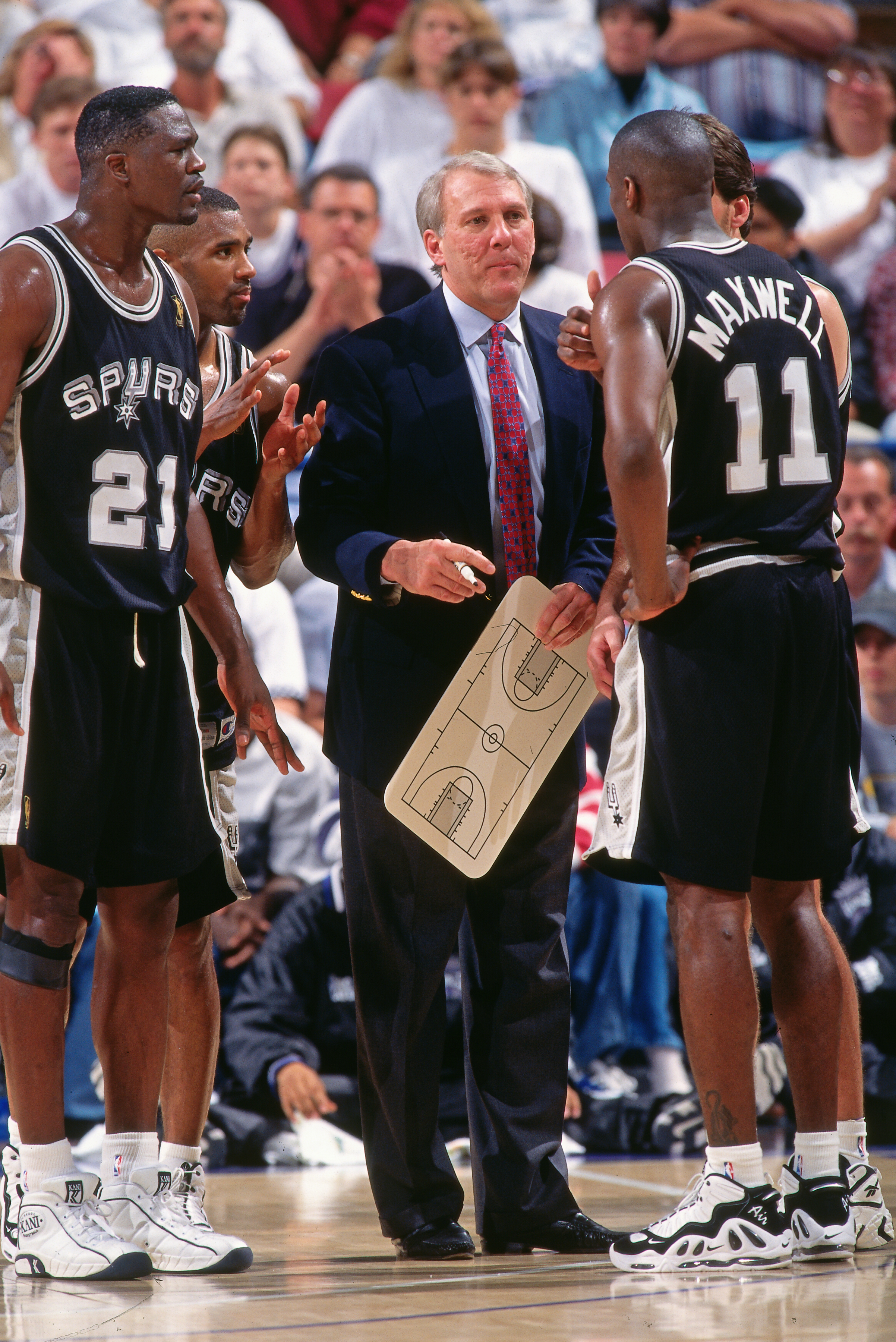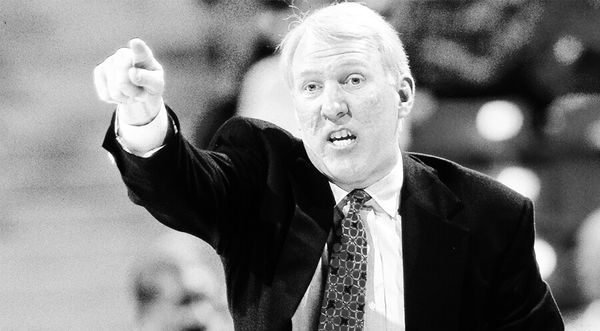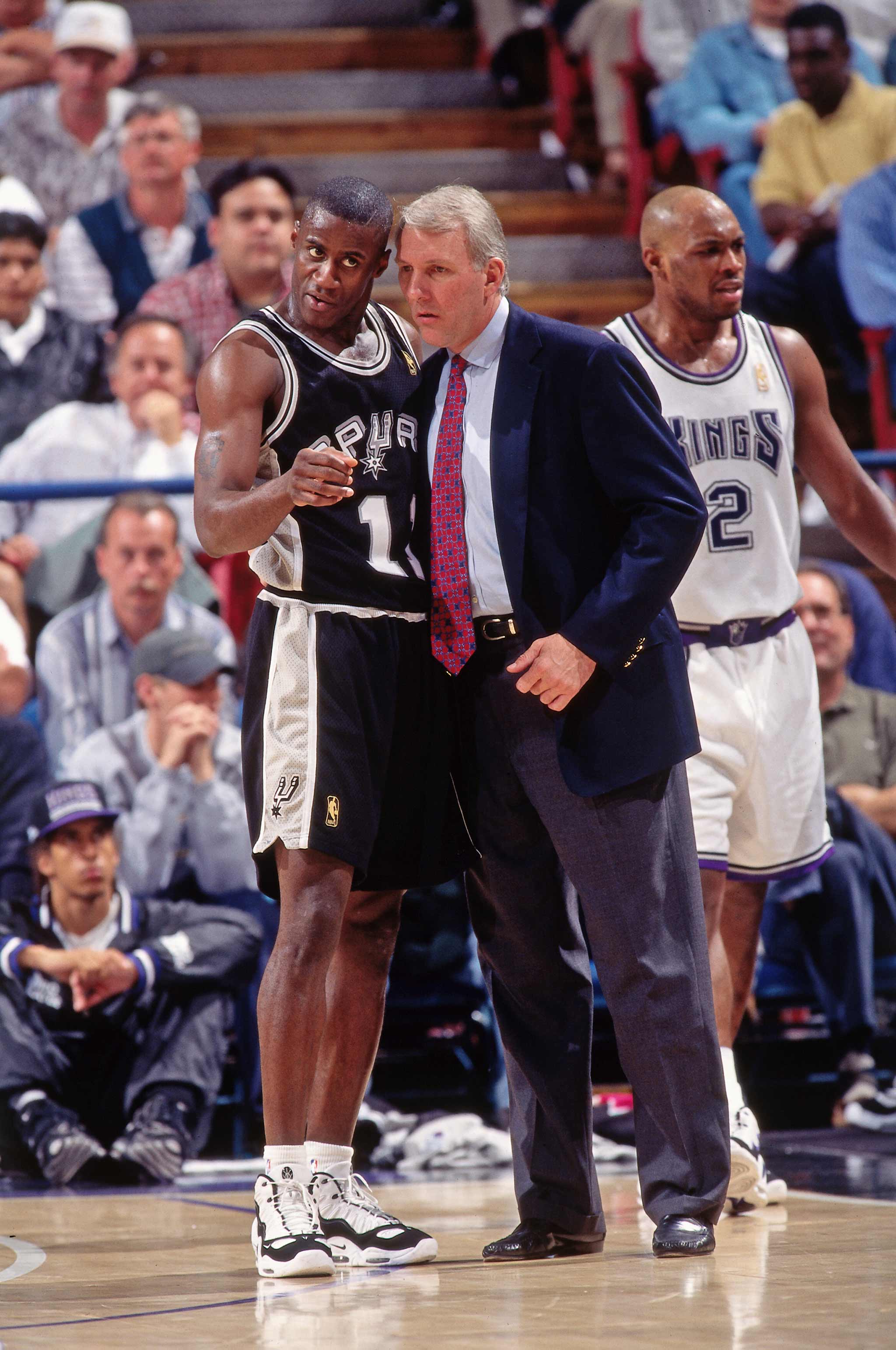Two decades ago, Tim Kempton already had experienced much of the stop-and-sputter life of a late NBA draft choice, popping up for periodic appearances with NBA teams when not forging a career overseas.
He had joined the San Antonio Spurs in late 1996, having long ago learned that staying under the radar offered security for a basketball lifer. But one December morning, Gregg Popovich, the team’s general manager and vice president of basketball operations, summoned him for a talk at their hotel in Phoenix before a game that night against the Suns.
Kempton had signed on with the Spurs at a crossroads in the organization’s history. Today, San Antonio is a model franchise for other organizations to emulate. Its string of continuity and winning spans 20 years, through multiple championships and, most recently, a nearly 30-point thrashing of the superstacked Golden State Warriors on opening night. But the Spurs were once an organization faltering without a foundation.
That morning in Phoenix, Popovich told Kempton that the Spurs appreciated his hustle and contributions in what had been a trying beginning to the season. But the organization had to release him to free a spot on the roster. Stay in shape, Popovich advised; anything can happen. Later that day, Kempton came across Bob Hill, the team’s coach since 1994, at the Ritz Carlton. Hill reiterated Popovich’s message to Kempton, that the team valued him but he had just been caught up in a numbers game.

From left to right: San Antonio Spurs assistant coach Gregg Popovich, David Robinson and head coach Larry Brown sit on the bench at Madison Square Garden in New York City, in 1989. (Getty Images)
Popovich had likewise asked to meet with Hill, who thought Popovich possibly wanted to discuss a contract extension. Hill had, after all, piloted the team to a franchise-best 62 wins in 1994-95 and followed that up with nearly as many victories the next season.
But that December evening, Kempton was surprised when Hill joined him for a drink. That's because Hill was also on his way back to San Antonio, having been fired by Popovich at their meeting.
"I was dumbfounded," Kempton said. "He walked in and he was pretty fired up, and we both had a couple of cocktails."
Kempton found it mildly curious that Popovich had joined the team for the trip in the first place. Team executives seldom traveled back then. Kempton knew the Spurs needed his roster spot to welcome back their pillar, David Robinson, who had been injured. Maybe Popovich wanted to inspect Robinson's return in person, Kempton rationalized.
Popovich replaced Hill on the bench for that night’s game against the Suns. In the two decades since, the Spurs have experienced a run nearly unparalleled in professional sports, winning five championships amid innumerable wry grins and dry—sometimes harsh—one-liners from their coach. In hindsight, the decision for Popovich to coach San Antonio appears preordained.
"Now, you can look back on it and you almost kind of say, 'Oh, I see, it was kind of planned,’" said Kempton, who is now the color commentator of the Phoenix Suns radio broadcast.
Back then, it did not seem like destiny. Hill was immensely popular, and Popovich—largely unknown and with virtually no head coaching experience—became a rookie NBA coach of a disappointing, struggling team.
✦ ✦ ✦

Newly appointed head coach Gregg Popovich looks on against the Sacramento Kings at Arco Arena in Sacramento, California, in 1997. (Getty Images)
Popovich started the journey before he had Tim Duncan, before he knew of Tony Parker, Manu Ginobili, Kawhi Leonard or LaMarcus Aldridge. There were no guarantees from himself or the organization's hierarchy that he would even return past that initial broken year.
After finishing the 1995-96 season 59-23 before falling to the Utah Jazz in the Western Conference Semifinals, San Antonio had entered the new campaign amid soaring expectations. But that was before Robinson injured his back in the preseason.
"We went to New Orleans to play Houston in our first exhibition game, and that's when his back first started giving him problems," Hill said. "He had had problems with it in the past, but he always managed it well, but this time it got worse."
The team revolved around Robinson and collapsed without him.
"That was our foundation," said Sean Elliott, a forward on the team. "He's one of the best players in the league, and he's such a dominant player on both ends of the court that you build everything around that."
Internally, the team expected Robinson's return to mark the beginning of a turnaround. The Spurs were still fewer than 20 games into the season. Beyond Robinson, most of the team's frontcourt—Charles Smith and Chuck Person—was also sidelined.
"He's one of the best players in the league, and he's such a dominant player on both ends of the court that you build everything around that."
— SEAN ELLIOTT, FORMER SPURS FORWARD, ON DAVID ROBINSON
"The only two guys that weren't out were Avery [Johnson] and Vinny [Del Negro]," Hill said. He thought he had done his best treading water until Robinson's return. That night, with Robinson back against the Suns, he figured the team would finally return to normalcy.
Hill had dined with Dominique Wilkins just an evening before his firing and had been relaying to Wilkins how his role would adjust with Robinson back in the lineup.
The next day, members of the San Antonio Spurs all piled into the bus idling outside of the Ritz Carlton to depart for that late-1996 game against Phoenix.
"Nothing's happening," Will Perdue, a center on the team, recalled of that moment. "The coaches aren't coming out. Then all of a sudden, the assistants come out."
Popovich boarded the bus. He told the team he let go of Hill and that he would be the team's coach. He instructed the driver to head to the arena.
The players remained quiet. Popovich had rejoined the organization as a member of the front office in 1994. He was a Spurs assistant from 1988 to 1992 under Larry Brown before assisting Don Nelson for two seasons with the Warriors. His only prior head coaching experience occurred mostly during the 1980s at Pomona-Pitzer, the combined team for two liberal arts schools in Southern California.








